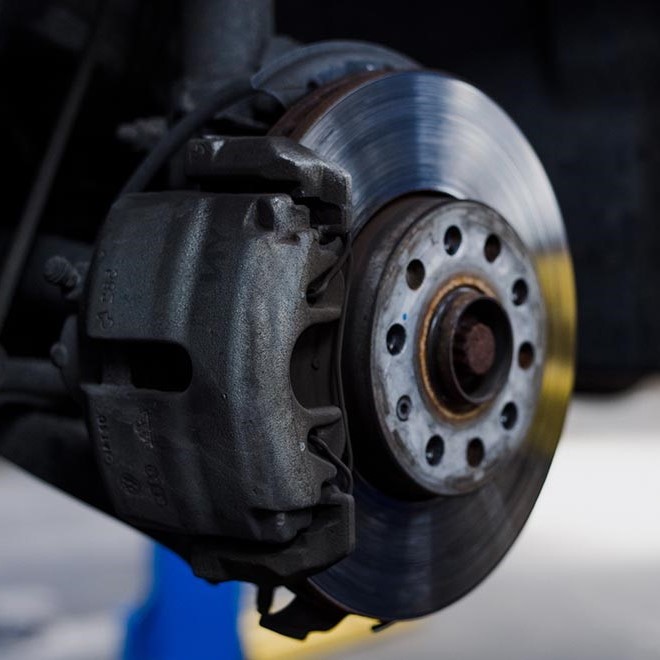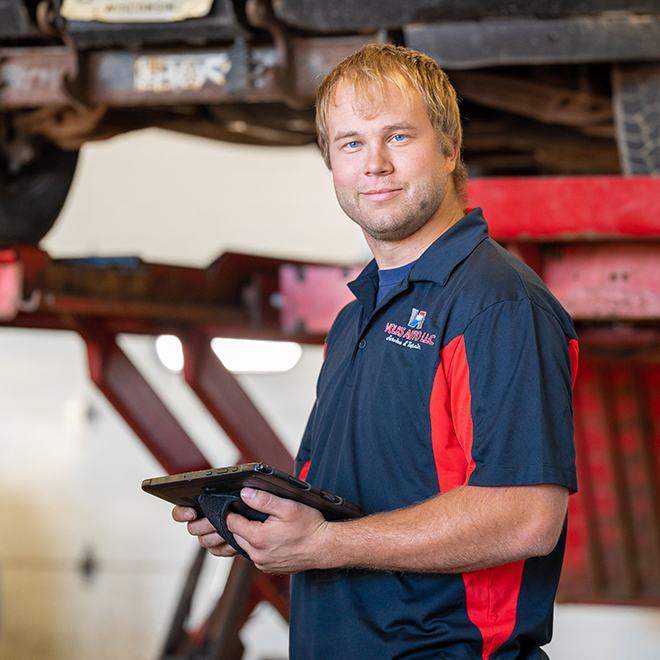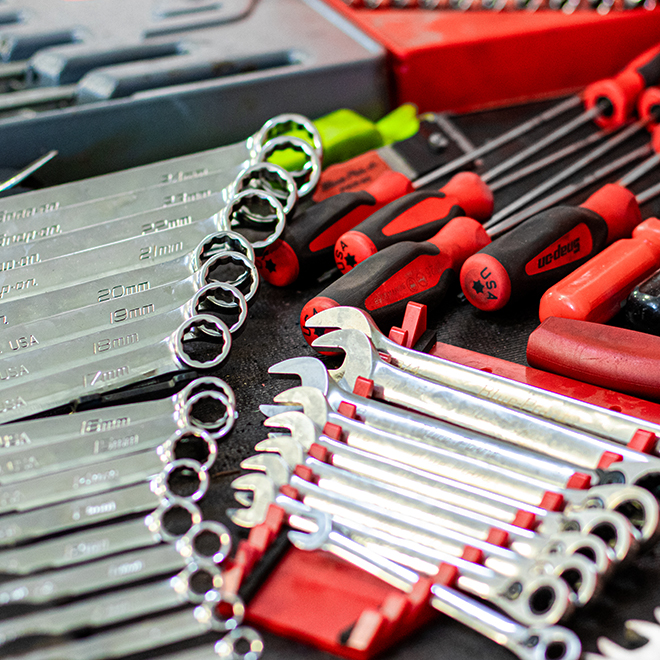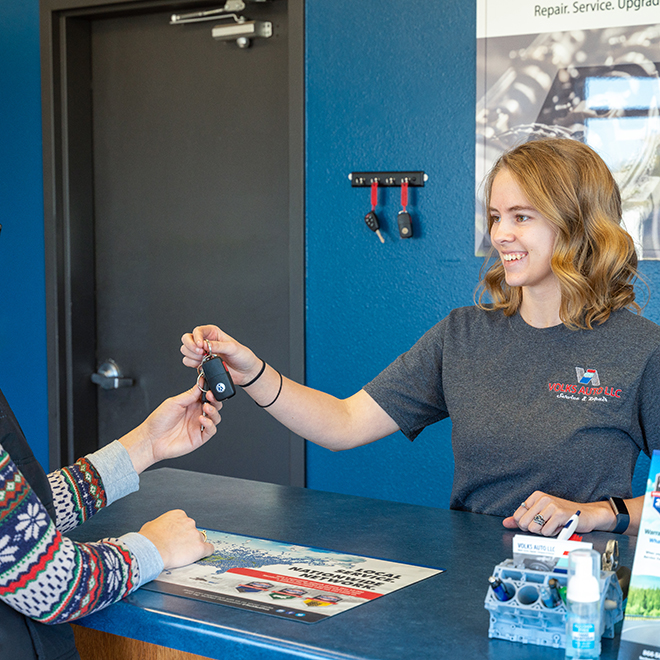Brake Service
Safety & Peace of Mind
You use your brakes every single time you drive. They are the #1 safety system on your vehicle. Brake issues can range from annoying noises to catastrophic failures.
Brakes are often though of as a simple service, but there are many small details that can make a big difference in how well your brakes work, how long they last, and how much they cost.
Read more below about how we take extra care in servicing your brakes, or call to book an appointment.
Step 1 – Brake Evaluation
Brake issues can range from annoying noises to catastrophic failures. No matter the case, it is important that the issue is addressed properly. At Volks Auto, every brake service starts with a full brake system evaluation.
What does that mean? You can see the technical description below, but lets be real- What does that mean for you?
That means when we service your brakes, you will know exactly what it needs and how much its going to cost- no surprises midway through the repair. After the brake evaluation is complete, you will get a digital inspection with pictures, and an exact price for each repair needed today, and anything that might be needed in the near future.
You can approve the entire estimate or just part of it, you’re in control. If you do not want your brakes fixed, you simply pay for the inspection- there’s no pressure.
Brake System Evaluation, The Technical Talk: Test drive vehicle to evaluate braking performance and listen for abnormal noises. Remove all four wheel and tire assemblies; Inspect brake rotors for rust and groves, if needed, measure the rotors for runout and thickness, compare to specification. Measure rotor diameter. Measure pads thickness and compare to specification. Inspect calipers, hoses, and lines for wear and abnormalities. Manually move caliper to verify caliper and slide pin condition, inspect slide pin boots. Inspect master cylinder. Inspect visible system wiring such as brake pad sensor wiring. Record all measurements and abnormalities where applicable.
Step 2 – Brake Repair
When we service your brakes, we take extra precaution to ensure you will not have any issues down the road.
To start, we use high quality brake parts to ensure excellent braking performance and durability. Often times new parts have oils left behind from manufacturing will cause squeaking, so each part gets cleaned before it is installed. We also clean the surface where the rotor meets the wheel hub, and make sure the surface is straight and free of rust build up. To prevent future rust or corrosion, we apply a coating the surface of the hub before installing the rotor.
Then, we make sure the caliper brackets are free of rust so that new brake pad clips can be properly installed- those clips are are common culprits of squealing and rattling. To prevent corrosion and damage to your new brakes, we lubricate all of the moving parts so nothing sticks, increasing the life of the brakes.
Finally we torque all fasteners to specification, as over tightening can warp the rotors causing the steering wheel to shake while braking. Once everything is reassembled, we will test drive the vehicle again to ensure proper braking performance.
For added peace of mind, our services are backed by a 3 year 36,000 mile nationwide warranty.
Brake Maintenance
While brake replacement and repairs are very common, many people don’t know there are preventative maintenance services that will help your brakes last longer.
For example, most manufactures recommend replacing brake fluid as part of routine maintenance. Over time, the additives in brake fluid are depleted or break down, and the brake fluid no longer has adequate anticorrosive inhibitors. This means corrosion of internal brake hydraulic components may occur, including calipers, hoses, lines, and more. New brake fluid will help prevent future corrosion, and extend the life of critical brake components.
How often should you change your brake fluid? Some manufactures recommend as often as every 10,000 miles, while others recommend every 40,000 miles. The answer depends on what type of vehicle you have. We also test the corrosion level of your brake fluid when we inspect your vehicle.
Another way to help your brakes last longer, is a brake lubrication service. A good quality set of pads and rotors should last several years. However, if the moving parts start to get rusty, it can cause the calipers to stick and wear through brake pads rapidly. To prevent this, you can have your brakes cleaned and lubricated to ensure everything is moving as it should. We recommend this as an annual service, and its best to do it in the spring time after all the salt is off the roads.
Our final recommendation is to keep your car clean. A regular car wash, especially with the salty winter roads, will help prevent many rust related issues.
Auto Service and Repair Shop
European, Domestic & Light Diesel
Call us today
or




